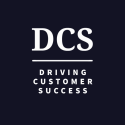Every Business with Customers Needs CRM Software. Here’s Why.
by Steve Oriola, CEO at Act!
One-third of customers who abandoned a business relationship last year did so because personalization was lacking, according to Accenture. Few businesses can afford to lose customers, and losing so many customers from a simple lack of attention is inexcusable. Customer Relationship Management (CRM) software can help companies establish and foster genuine customer relationships, enabling them to securely track all interactions with existing and prospective customers: client notes, communication preferences, and purchase history.
A robust CRM platform facilitates the fully personalized and consistent experience that modern consumers demand (without adding expensive overhead for the business). Overall, the benefit of CRM software is that it provides more engaging customer experiences, increases customer loyalty and retention, and, in turn, drives business growth and profitability.
There is a common misconception that only large companies need CRM software since they have large teams managing complex customer lifecycles. While enterprises have used CRM for decades to manage their client databases, small to mid-sized businesses (SMBs) can reap significant benefits from implementing a CRM solution tailored to their operations. While companies with a team of customer success experts need a CRM to track their many workstreams, a smaller business can leverage CRM to do more with less and appear larger to their customers.
In recent years, CRM software has lowered many barriers to entry and incorporated many automation features, essentially leveling the playing field for businesses of all sizes. As with any technology investment, looking inward at the business’s pain points is essential to determine how a CRM solution can best provide relief. Here is a broad look at the challenges that both enterprises and SMBs face and how CRM software can address them:
Enterprises
While large enterprises benefit from a tenured team of customer success experts, most still experience data silos throughout the organization. This can slow operations and cause problems if everyone on the team is not working from the same information. Enterprises also have significant tracking, and reporting requirements, so disjointed information can lead to inaccurate reporting and a lack of insight, leading to potentially detrimental decision-making. Enterprises that benefit from a large market can see that market as monolithic (all of these prospects have the same problem and approach), which leads them to fail to personalize their communications. As described earlier, this creates customer dissatisfaction, lower retention rates, and inhibits revenue growth.
A CRM solution customized for enterprise operations can help break down the data silos to share the correct information across departments, organize it within the platform to optimize reporting fidelity, and leverage data to personalize interactions, reducing churn. With customer data shared across departments, customer success teams become more proactive in anticipating issues before they happen.
CRM enables enterprises to better cater to the needs of their sales teams and arm them with the tools they need to best nurture prospects. It is easier (and cheaper) to retain customers than it is to attract new ones. CRM, matched with targeted automated marketing communications, can also help here. Designing workflows that send client communications as they near usage thresholds, renewal dates, or potential upgrades means tailored outreach, maximized revenue opportunities, and your best customers feeling cared for.
Small and Midsize Businesses
SMB owners wear several hats and, out of necessity, perform many functions within their business, often taking on a “jack of all trades” persona. With their attention spread so thin and fewer resources than their enterprise counterparts, SMB owners and managers often can’t dedicate enough time to sales and marketing operations.
This is more than a pitfall for SMBs; this is an existential threat. The customer base, and the resulting revenue, are the lifeblood of a small business. Deprioritizing client communications can make customers feel neglected and make them susceptible to competitive messaging. While perhaps not the first thought of SMB managers, CRM software offers various benefits to relieve this pressure around sales and marketing.
An SMB-focused CRM provides the tools to make nurturing prospects, managing relationships, and spotting opportunities easier with customer management, activity tracking, and sales pipelining. For example, Hal Hanstein, President of commercial real estate company Cardinal Realty Group, says that in his industry, “who you know is often what matters most.” By leveraging CRM software to “digitize his Rolodex,” Hal has ensured that he makes the right connections to get the best deal and shares that he “would be lost without it.”
With marketing automation integrated with CRM, SMBs can plan marketing campaigns and send automated email sequences to prospects, moving them through a buying journey without lifting a finger. Cost is typically top of mind for SMBs researching technology investments. Many CRM providers offer a pay-per-seat option rather than one fixed price or provide entry-level functionality in simplified editions, making it more affordable.
Every business is different, even from other companies providing the same services, so customization is crucial. CRM software, even versions packaged for SMBs, needs the flexibility to meet that business’s unique needs. As SMBs look to grow, their CRM can grow with them, so there is no need to move to a different platform as their operation scales.
While the specific pain points of enterprises and small businesses may vary in size or degree, one thing holds: customer relationships are the lifeblood of a business. Keeping more customers – and keeping customers happier – is the key to consistent earnings, predictable revenue, and the stability required to scale.
Any business with customers, whether a Fortune 50 financial institution or an individual insurance agent, can benefit from centralizing and automating its client management with a CRM solution. CRM software simplifies customer service, improves customer retention, and fosters stronger relationships, so customers feel connected to the business. The business can personalize its customer care experience with minimal effort and expense.
Original post here

Hakan Ozturk
Founder, theCScafe.com, #1 Weekly Customer Success Newsletter
Hakan Ozturk is a Paris-based Customer Success leader with over 15 years of experience in the computer software industry. Passionate about driving growth and delivering value to strategic customers, Hakan has established himself as a trusted industry expert. As the Founder of The Customer Success Café Newsletter and TopCSjobs.com, Hakan provides valuable industry insights and daily-updated job opportunities worldwide in the field of Customer Success. Connect with Hakan to boost your career in CS and your company’s potential for massive growth.

Leave a Reply